SOUTH ASIA ACROSS THE DISCIPLINES
EDITED BY MUZAFFAR ALAM, ROBERT GOLDMAN, AND GAURI VISWANATHAN
DIPESH CHAKRABARTY, SHELDON POLLOCK, AND SANJAY SUBRAHMANYAM, FOUNDING EDITORS
Funded by a grant from the Andrew W. Mellon Foundation and jointly published by the University of California Press, the University of Chicago Press, and Columbia University Press
South Asia Across the Disciplines is a series devoted to publishing first books across a wide range of South Asian studies, including art, history, philology or textual studies, philosophy, religion, and the interpretive social sciences. Series authors all share the goal of opening up new archives and suggesting new methods and approaches, while demonstrating that South Asian scholarship can be at once deep in expertise and broad in appeal.
For a list of books in the series, see
Columbia University Press
Publishers Since 1893
New York Chichester, West Sussex
cup.columbia.edu
Copyright 2014 Columbia University Press
All rights reserved
E-ISBN 978-0-231-53818-3
Library of Congress Cataloging-in-Publication Data
Pande, Amrita.
Wombs in labor : transnational commercial surrogacy in India / Amrita Pande.
pages cm. (South Asia across the disciplines)
Includes bibliographical references and index.
ISBN 978-0-231-16990-5 (cloth : alk. paper)
ISBN 978-0-231-16991-2 (pbk. : alk. paper) ISBN 978-0-231-53818-3 (e-book)
1. Surrogate motherhoodIndia. 2. Surrogate mothersIndia. I. Title.
HQ759.5.P36 2014
306.874'3dc23
2014004973
A Columbia University Press E-book.
CUP would be pleased to hear about your reading experience with this e-book at .
Cover photograph: Miriam Hinman Nielsen
Cover design: Lisa Hamm
References to websites (URLs) were accurate at the time of writing. Neither the author nor Columbia University Press is responsible for URLs that may have expired or changed since the manuscript was prepared.
T HIS BOOK could not have been possible without the nurturance of many people. Foremost are the women who consented to be interviewed and shared their tears, laughter, and surrogacy stories with me. Most of these women must remain anonymous. But no less important are those who can and must be named. My academic advisors, angels, knights in shining armor: Millie Thayer, Robert Zussman, Joya Misra, and Elizabeth Hartmann in Amherst, Massachusetts, not only gave help with the contents of this book but also fortified my spirit with their emotional support through all the crises that inevitably inundate a writers life. Their support and advice, concerning not just the book but anything else that might have affected my sanity, have kept pouring in despite the physical distance between us. I cannot thank you enough. I am indebted to Michael Burawoy and Arlie Hochschild for their unexpected and insightful feedback on early drafts of some chapters. This project would have been impossible to complete without two generous fellowships provided by the Social Science Research Council and one by the University of Massachusetts, Amherst, as well as a research development grant by the University of Cape Town, South Africa.
Fellow panelists at several conferences and editors and reviewers of journals pushed me along with key questions on some of this material. A number of articles based on this project have been published in journals. Part of chapter 4 appeared in 2010 in Signs: Journal of Women in Culture and Society 35 (4): 96994. Part of chapter 5 appeared in 2011 in Reproductive BioMedicine Online 23 (5): 61825. Part of chapter 7 appeared in 2010 in Feminist Studies, Special Issue on Reproduction and Mothering, 36 (2): 292312, and in 2009 in Indian Journal of Gender Studies 16 (2): 14173. Finally, part of chapter 8 was published in 2009 in Qualitative Sociology 32 (4): 379405. I am grateful to the fellow panelists, the journal editors, and anonymous and known reviewers for all their feedbackthe good, the bad, and the ugly.
As they say in Bollywood movies, friendship means No thank you, no sorry! So, study buddies, fellow sufferers, and my surrogate family in Amherst, MassachusettsAnnette Hunt, Anne Hector, Brittnie Aiello, Emmanuel (Manny) Adero, Jiye Kim, Kat Jones, Kathleen Hulton, Martha Morgan, Sofia Checa, and Swati Birlahere are all the accumulated Thank yous and Sorrys that I never said. My enthusiastic group of critics and friends in Tripoli, Lebanon, deserve more than a mention. Oliver Bridge, Joana Cameira, Sara Dominoni, Nancy Hilal, and Elsa Salame asked the right questions at the right time, and encouraged me to make this manuscript a readable read. My current home, Cape Town, offered a fresh batch of critics, colleagues, and friends. Amna Khalid, Elena Moore and the Sitas-Von Kotze family (Ari Sitas, Astrid Von Kotze, Rike Sitas) brainstormed with me about many versions of new chapters. Their impromptu suggestions over cups of coffee and bottles of wine helped me and the book stay afloat during my first few years at the University of Cape Town. Other colleagues and friends at UCTDavid Lincoln, David Cooper, John De Gruchy, Lucy Earle, and Nancy Odendaalgave occasional feedback on these new chapters. I am grateful to the SSRC-Mellon Book Fellowship for keeping the book on track and introducing me to Adi Hovav, the most patient editor-reader of the first few drafts of this book. Series editor Gauri Viswanathan and Jennifer Crewe, my editor at Columbia University Press, impressed me with their frank advice throughout the process. Again, many thanks for keeping the faith. A special thanks to Jan McInroy for her wonderful copyediting skills and for gently persuading me to use persuade instead of convince!
This book and research got a fresh lease on life in 2009 when I started interacting with Ditte Marie Bjerg, the creative head of Global Stories, a Danish theater company that works on projects lying at the intersection of gender and globalization. Our experiments with interactive theater have taken us all around the globe, and finally back to the surrogates in India. Thanks, Ditte, for embarking on this adventure with me!
Heartfelt thanks to Akhil and Manisha Kumar for their affection and heroic patience. Their kind query Have you reached the conclusion yet? served as one of the best deadlines. Ishita played a crucial role not only as the persuasive elder sister who coaxed a weary economist to become a sociologist instead but also as a mentor and successful book author. Our daily writing sessions over brownies and cups of coffee at the Harvard Coop in Cambridge and at Caf Lazari in Cape Town helped me meet many deadlines, cheerfully.
There are never enough words to thank ones parents. So I wont even try thanking my parents, Bratati and Shailendra Pande, for their boundless affection, unfaltering support, and determined praise for everything I do.
Something much more than thanks is due to my partner in crime, Aditya Kumar, for indulging me with the kind of love, wisdom, and patience that only he is capable of. It is true; I couldnt have done this without you. Zaira, you enter the stage as I add the final touches to this book. I was told your arrival would change the whole meaning of this project for me. As I sneakily type these lines between the hourly feeds and after the sleepless nights, I have to confess that it did indeed.


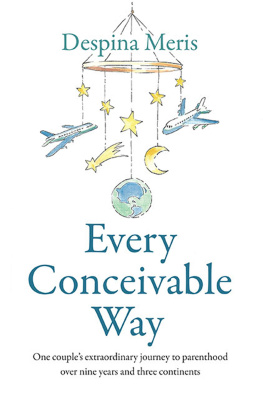
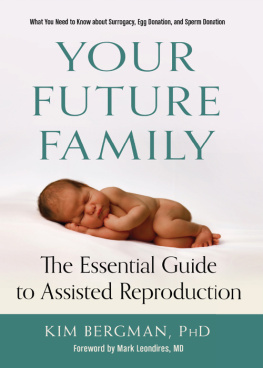
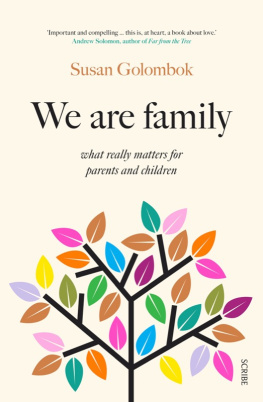

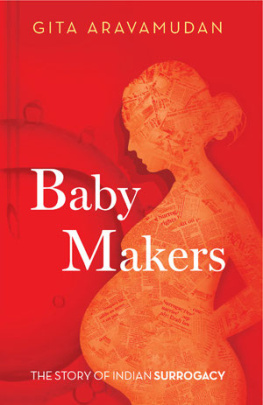
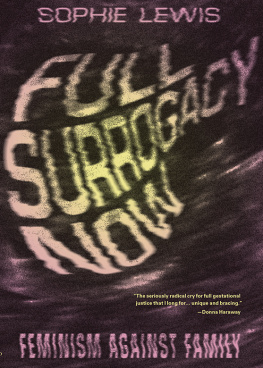

 AMRITA PANDE
AMRITA PANDE
